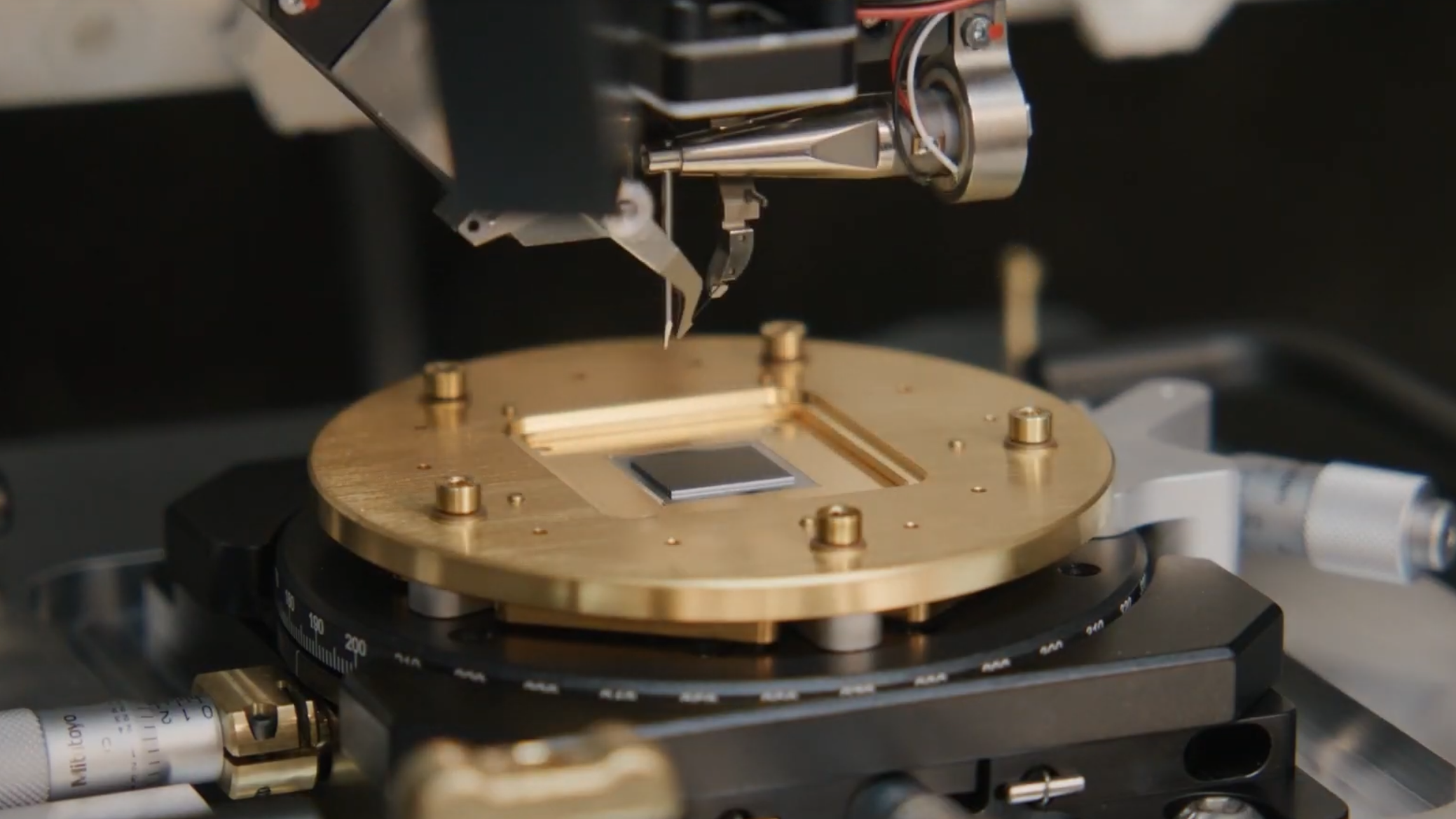Amazon's Ocelot quantum chip uses 'cat qubits' to 'reduce error correction by up to 90%'
Architecture change should accelerate the quantum timeline and significantly reduce costs.

Get Tom's Hardware's best news and in-depth reviews, straight to your inbox.
You are now subscribed
Your newsletter sign-up was successful
Earlier this morning, Amazon's AWS (or just Amazon Web Services) introduced Ocelot, a new scalable quantum computing solution claimed to reduce the costs of quantum computing error correction by up to 90% "compared to current approaches." Perhaps coincidentally, this scalable quantum computing solution debuted within less than ten days of Microsoft's own scalable quantum computing solution, Majorana 1, though that solution is focused more on accelerating raw quantum computing power through new "topoconductor" technology rather than lowering the pricing of existing quantum computing error correction capabilities.
What AWS' Ocelot chip seems to be prioritizing is quantum error correction, but especially making it less expensive to implement. When one considers the scale at which AWS operates — supporting over 1.45 million companies according to Avention Media, with the list including powerhouses like Netflix — seeking out ways to reduce costs for cutting-edge, scalable quantum computing solutions makes a lot of sense.
But how does it work, and why is it named Ocelot? Well, like the infamous Metal Gear Solid (1999) character, Ocelot is named after a specific breed of wild cat native to the Americas. AWS Ocelot is also stated to be built around a novel design that implements "cat qubits" that intrinsically suppress certain forms of errors, which should reduce the costs and resources required for quantum error correction. Add "additional quantum error components into a microchip that can be manufactured in a scalable fashion using processes borrowed from the microelectronics industry," and you're left with the AWS Ocelot architecture.
On the off-chance you're reading this without knowing what a regular old qubit is, just think of it as a quantum computing equivalent to a regular old computing bit. Regular old bits can only represent a "1" or a "0", while qubits can represent either of those or "a quantum superposition of 0 and 1", per Microsoft's documentation.
So, what exactly then is a "cat qubit"? Apparently, just a form of qubit with some forms of quantum error correction built in from the ground up. Basically, a qubit equivalent to ECC (error-checking code) RAM.
According to Oskar Painter, AWS director of Quantum Hardware, "With the recent advancements in quantum research, it is no longer a matter of if, but when practical, fault-tolerant quantum computers will be available for real-world applications. Ocelot is an important step on that journey. In the future, quantum chips built according to the Ocelot architecture could cost as little as one-fifth of current approaches, due to the drastically reduced number of resources required for error correction. Concretely, we believe this will accelerate our timeline to a practical quantum computer by up to five years."
These are some very strong, encouraging words — particularly considering Microsoft's own recent comments around Majorana 1 also point toward "quantum computers capable of solving meaningful, industrial-scale problems in years, not decades". Time will tell which megacorporation's approach to feasible quantum computing will lead to viable market products sooner, but the competition heating up like this should only prove a good thing for consumers and the enterprise in the long run.
Get Tom's Hardware's best news and in-depth reviews, straight to your inbox.

Christopher Harper has been a successful freelance tech writer specializing in PC hardware and gaming since 2015, and ghostwrote for various B2B clients in High School before that. Outside of work, Christopher is best known to friends and rivals as an active competitive player in various eSports (particularly fighting games and arena shooters) and a purveyor of music ranging from Jimi Hendrix to Killer Mike to the Sonic Adventure 2 soundtrack.
-
passivecool AZ can't get Alexa AI running for years and, you know, I have been wondering where they are putting all that R+D cash.Reply
But now I understand! They want to leapfrog the competition ... to a new era ... I can buy ... the first CO2-driven dishwasher on Mars! But maybe in the interim, the AWS-powered, quantum driven spam would be more entertaining than the 50x I receive every day which leverage their current system.
If Jeff were my buddy, I would remind him: Head in the clouds is great, bud, but keep a foot on the ground. At least one. -
jp7189 "I predict that within 10 years, computers will be twice as powerful, ten thousand times larger, and so expensive that only the 5 richest kings of Europe will own them" John N. FrinkReply